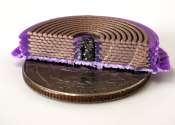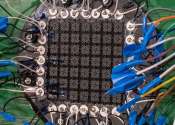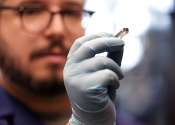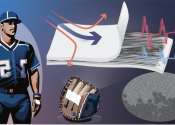A solar cell you can bend and soak in water
Researchers from the RIKEN Center for Emergent Matter Science and collaborators have developed an organic photovoltaic film that is both waterproof and flexible, allowing a solar cell to be put onto clothes and still function ...
Mar 27, 2024
0
26









